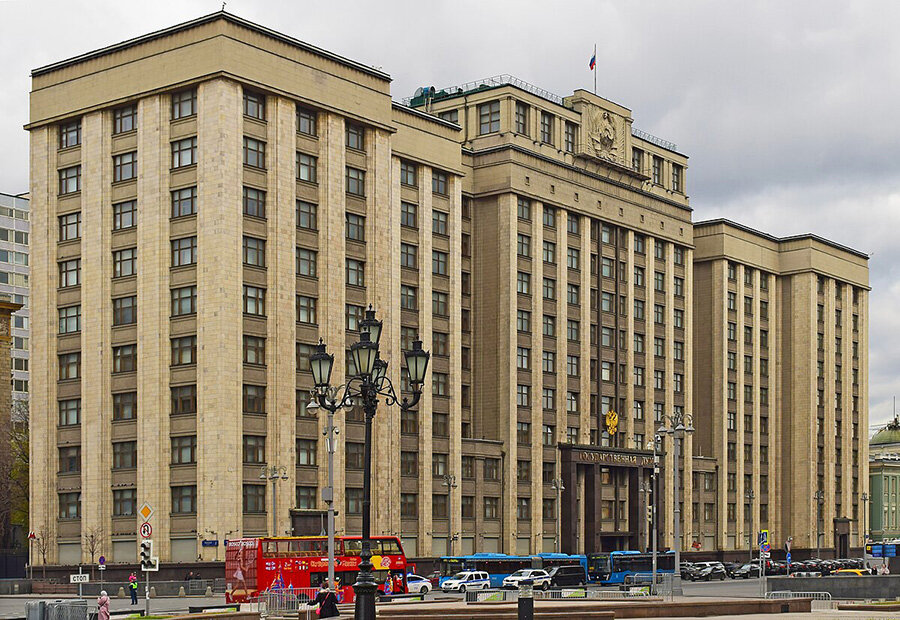Russia Tightens Digital Control: Fines for VPNs, SIM Cards, and Online Accounts

Photo: Wikimedia
In 2025, Russia approved a package of amendments to the Code of Administrative Offenses, significantly expanding digital restrictions. The new articles target the administration and promotion of VPN services, deliberate searches for extremist content, and the sharing of SIM cards and online accounts. Penalties also apply for disclosing how online platforms interact with state authorities. These changes affect both individuals and companies — including telecom operators, digital platforms, and IT businesses.
According to TASS, a new Article 13.52 introduces fines for violating rules on using software and hardware to access information banned in Russia — including VPNs, TOR, and Yggdrasil networks not registered with Roskomnadzor. Fines range from ₽50,000–₽80,000 for individuals, ₽150,000 for officials, and ₽200,000–₽500,000 for companies. Repeat violations may result in fines of up to ₽1 million. Article 14.3 also establishes penalties for advertising such services.
According to Habr, even micro-VPNs — small-scale setups within families, offices, or study groups — may be considered “administration” if they enable access to banned resources. This expands liability from large providers to individual users or small teams.
Article 13.29.1 bans SIM card sharing. If a number is registered to one person but used by another, it may be fined — with the exception of short-term personal use. The penalty ranges from ₽30,000 to ₽50,000.
Under Article 13.29.2, sharing online login credentials without consent or official authorization may lead to penalties: ₽30,000–₽50,000 for individuals, up to ₽100,000 for sole proprietors, and ₽200,000 for companies. Authorized delegation of access is permitted.
Vedomosti reports that Article 13.53 introduces fines for knowingly searching for extremist content — ₽3,000 to ₽5,000 per offense. Accidental clicks or visits don’t qualify as violations. However, using a VPN in this context is listed as an aggravating factor under Article 63 of the Criminal Code. Merely having a VPN installed is not punishable — only its misuse, administration, or advertisement is.
Amendments to Articles 13.31 and 13.46 prohibit the disclosure of how digital platforms cooperate with authorities — known as “warrant canaries.” Publicly announcing that a service has not received FSB or other agency requests is now an administrative offense. This applies to hosting providers, messengers, and ISPs. Companies could be fined up to ₽5 million.
RBC quotes Communist Party deputy Alexei Kurinny, who warned that regular users might face charges simply for visiting sites included in Russia’s registry of banned content — many of which are unknown to the general public. Kurinny called this a form of “thought crime.”
According to State Duma Information Policy Chair Sergey Boyarsky, users may now be fined for searching, viewing, or listening to any content on the Justice Ministry’s list of extremist materials — which currently includes 5,437 items: articles, films, songs, books, and more.
Legal expert Lyudmila Aivar noted that proven intent is key to prosecution. Casual browsing or accidental link clicks don’t constitute a violation. Yet proving intent is difficult — requiring digital traces and clear user motivation — creating legal uncertainty.
Regarding SIM cards, experts clarified that bans already existed, but the new rules formalize penalties. Lending a SIM to relatives or friends for personal use remains legal. Senator Artem Sheikin said penalties won’t apply to cases of fraud where the card owner was unaware of misuse.
Digital Minister Maksut Shadayev stated that the amendments are aimed at curbing extremism — not banning major foreign platforms — and that ordinary users won't be penalized for legal activity.








